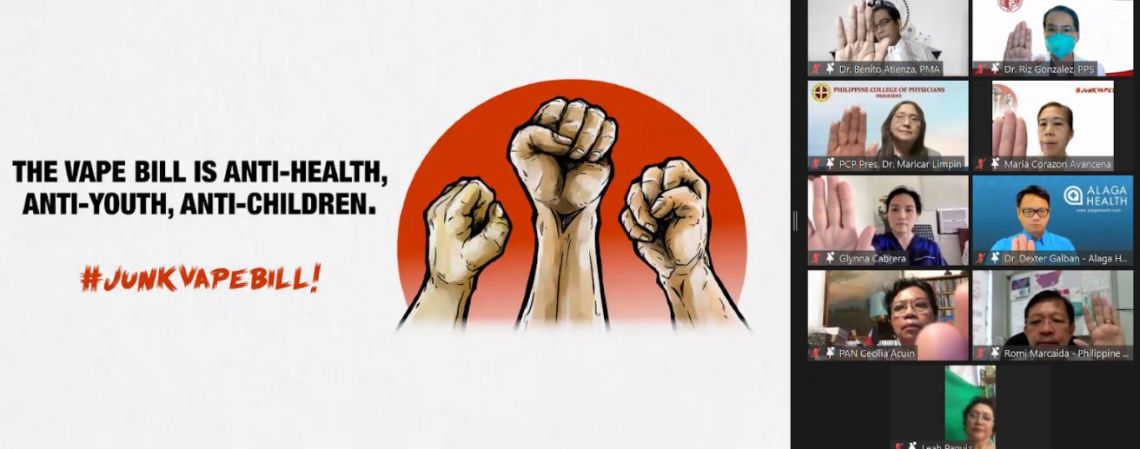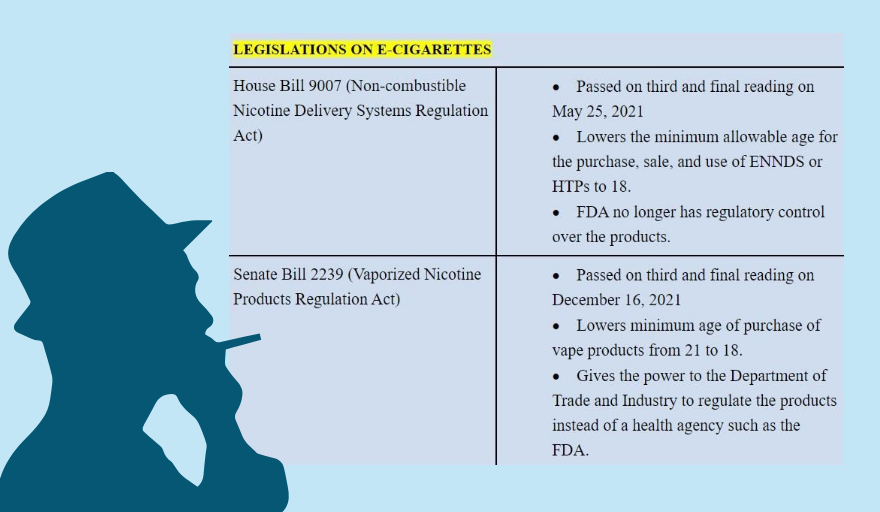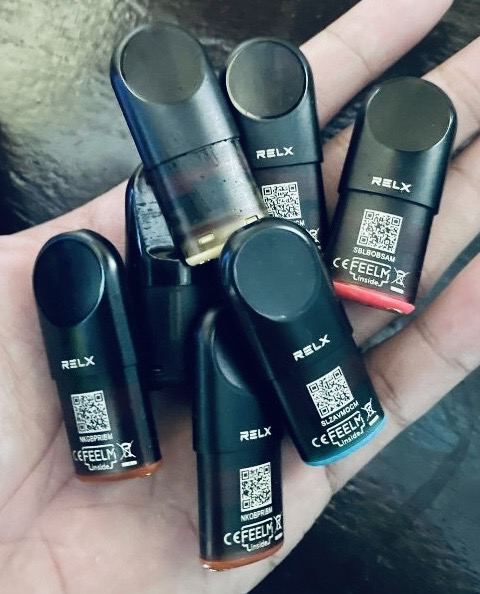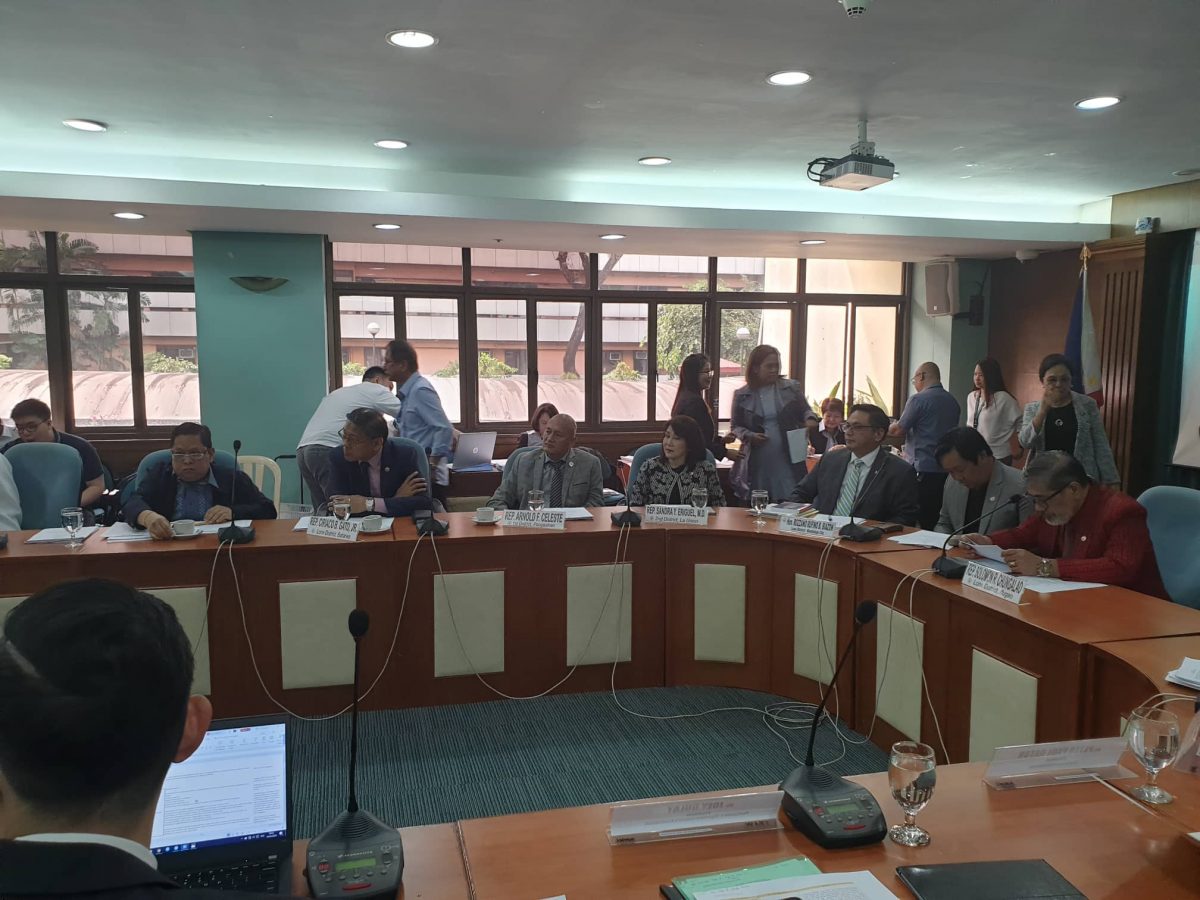In the final year of the Duterte administration, Congress approved a bill that defies the chief executive’s anti-tobacco smoking and anti-vaping position.
The proposed “Vaporized Nicotine and Non-Nicotine Products Regulation Act,” ratified by the Senate and the House of Representatives last Jan. 26, weakens stringent regulatory provisions of Republic Act (RA) No. 11467, which the same Congress approved in 2019 and President Rodrigo Duterte enacted in January 2020.
RA 11467 increased the excise taxes on the so-called “sin” products including alcoholic drinks, electronic cigarettes (e-cigarettes or vapes) and heated tobacco products (HTPs). It included safeguards on the use, sale, manufacture, importation, and distribution of the alternative tobacco products to protect public health. The mandated restrictions were due for full implementation this May.
The pending piece of legislation lowers the minimum age of access to e-cigarettes and HTPs from 21 to 18 years old, removes the two-flavor limit (plain tobacco and plain menthol) to allow a flurry of electronic juice flavors, and reclassifies these products as consumer items that should fall within the regulatory authority of the Department of Trade and Industry (DTI) instead of the Food and Drug Administration (FDA).
(READ: Sidebar on flavors, Sidebar on age of accessibility)
In November 2019, Duterte delivered strong public statements against tobacco smoking and vaping, saying these are “toxic” products that should be banned and users must be arrested.
“I will ban it … the use and importation. You know why? Because it is toxic and [the] government has the power to issue measures to protect public health and public interest,” Duterte said during a late-night press conference when he was asked about a Department of Health report confirming the first case of lung injury related to vaping in the country.
Months later, legislators, many of whom were his allies, took the contrary moves. In this infographic, VERA Files tracked how key members of Congress voted on the proposed law:
Senate President Pro Tempore Ralph Recto, proponent of the bill in the Senate, said he could attest to the effectiveness of vape products, having been a user himself.
“For many who have been trying, I included, the VNPs (vaporized nicotine products) have been a good alternative to kick the habit of smoking,” he said in his sponsorship speech on May 26, 2021.
Senate Minority Leader Franklin Drilon said he gave the bill a “critical yes” in the hope that it would give smokers, who are having a hard time to quit, a chance to shift to the smoke-free e-cigarettes. He shared that his first wife, the late Violeta Calvo, was a chain smoker. She died of lung cancer in 1995.
“My vote is for those who want to quit cigarette smoking, and turn to vapes and e-cigarettes as cessation aids. If vaporized nicotine products can help millions quit cigarette smoking then I am willing to give it a chance,” he said during third and final voting on Senate Bill 2239 on Dec. 16, 2021.
In the case of Senate Majority Leader Juan Miguel “Migz” Zubiri, who identifies himself as an anti-smoker, said he voted for the bill because of his experience with his family driver.
“I couldn’t stand that he is a heavy smoker… I can’t even stand a place where there is (someone) smoking …We just have to give these people an alternative,” he said.
Duterte’s most loyal supporter in the Senate, Sen. Christopher Lawrence “Bong” Go, abstained from voting. Go chairs the committee on health that initially had jurisdiction over the bill but did not object to having it referred to the trade subcommittee under Recto.
During the Senate session on Sept. 14, 2021, Go, who was Duterte’s long-time aide before he ran for a senatorial seat in 2019, said policymakers must “strike a balance between regulating consumer goods and protecting public health.”
In the end, only Sen. Pia Cayetano, who authored the bill that became RA 11467, was left dissenting, as she asserted that the novel tobacco products are harmful to people’s health.
“Any benefit that the proponents are claiming should be founded on science and, in terms of making the shift, again, that should be clearly based on science also that the shift is actually happening, and it’s not just based on anecdotal evidence,” she said during a March 17 press conference on vape disinformation organized by public law interest group ImagineLaw.
(READ: Sidebar on harm reduction)
Recto, who hails from Batangas province where Philip Morris has its manufacturing facility, has often spoken about his shift to “less harmful” vape products.
Five of the six congressmen from Batangas, including Recto’s wife, Vilma Santos-Recto, voted yes to the bill. Rep. Mario Vittorio “Marvey” A. Mariño did not vote.
In several other regions, the lawmakers either voted a “yes” or did not cast their vote.
See the lawmakers’ voting summary here:
Tobacco farming is a major source of livelihood in Northern Luzon, comprising the provinces in Regions I (Ilocos), II (Cagayan Valley), and CAR (Cordillera Administrative Region).
In Regions I and II, 22 out of 24 legislators voted yes to the bill. Reps. Ria Christina Fariñas from the first district of Ilocos Norte and Junie Cua of Quirino did not cast their votes.
From CAR, two voted “yes,” three did not vote, and one abstained.
Out of 11 congressmen from Region 11 (Davao) where President Duterte hails, 7 voted “yes” despite Davao City’s strict smoking ban, and the rest did not vote.
While the Senate and the House have ratified the bicameral conference committee report on the bill last Jan. 26, the enrolled copy has not been submitted to Malacanang as of March 29.
The President has the option to sign the bill into law, allow it to lapse into law after 30 days from receipt, or veto the entire bill. Congress can override a veto with a two-thirds vote both in the House and the Senate. In recent history, Congress has not exercised this power to overturn a presidential veto.
Sources
House of Representatives, Congressional hearing on FDA, June 9, 2021
House of Representatives, Congressional Record, May 18, 2021
House of Representatives, House Bill No. 9007
House of Representatives, Third reading voting of HB9007, May 25, 2021
Inquirer.net, House leaders see strong drop in smoking rate once vape bill becomes law, Jan. 31, 2022
Manila Bulletin, House leaders say vape bill is their gift to save smokers’ lives, Jan. 30, 2022
Manila Standard, House leaders see vape bill ending widespread use of cigarettes in PH, Jan. 30, 2022
Official Gazette, Executive Order No. 106
Senate of the Philippines, Amendment of SB2239, Dec. 7, 2021
Senate of the Philippines, Hearing on SB2239, Sept. 22, 2021
Senate of the Philippines, Hearing on SB2239, Sept. 14, 2021
Senate of the Philippines, Senate Bill No. 2239
Senate of the Philippines, Senate Journal, May 26, 2021
Personal Communication, Muntinlupa Rep. Ruffy Biazon, July 13, 2021
This story is part of the project Seeing Through the Smoke, which is supported by a grant from the International Union of Tuberculosis and Lung Disease (The Union) on behalf of STOP, a global tobacco industry watchdog.





